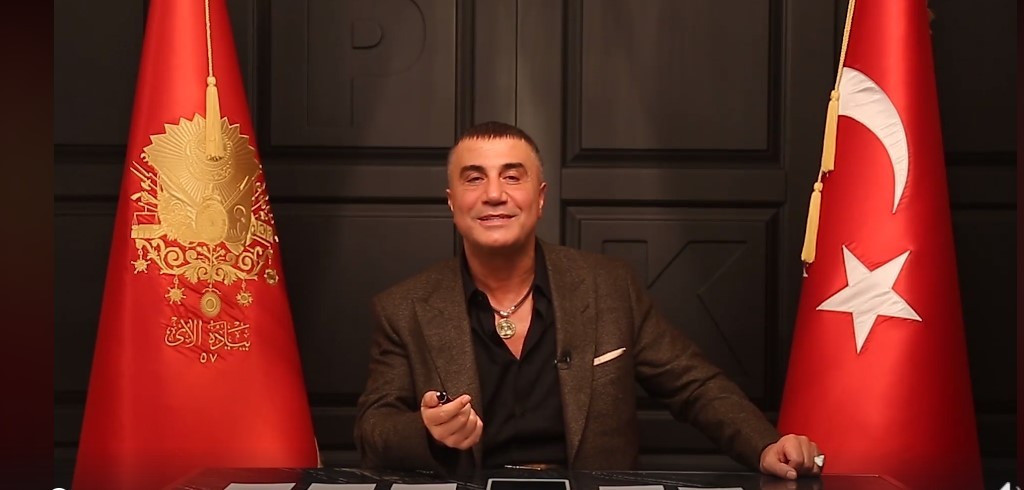The North Macedonian Ministry of Interior announced that Sedat Peker, a well-known Turkish mob boss, was detained on Dec. 18 and deported. According to the statement, Peker was taken into custody by the Public Safety Bureau for “abusing his stay.”
Unwilling to be deported to Turkey
Shortly after the North Macedonian police confirmed the deportation of a 49-year-old Turkish citizen, identified only by the initials R.S.P., the news made it to the top of Turkey’s political debate. According to information obtained by Turkish Minute, Peker requested that North Macedonian authorities not deport him to Turkey and instead requested Kosovo, a country to which Turkish citizens are able to travel without visas. Upon completion of the deportation procedures, Peker was ultimately deported to Kosovo.
According to a report by North Macedonia’s Lokalno news website, Peker was accused by local authorities of establishing contact with local criminal gangs and engaging in drug trafficking after entering the country.
Departure from Turkey
In the past, Peker used to be a regular guest at Turkish President Recep Tayyip Erdoğan’s official events. His pictures with Erdoğan had caused controversy due to his criminal reputation. Peker had also published video speeches threatening Erdoğan critics and held rallies under permit in predominantly nationalist cities like Trabzon and Rize.
Peker’s threats had targeted followers of the faith-based Gülen movement, whom he vowed to hang in city squares, as well as the “Academics for Peace,” a group of scholars who came to prominence by signing a petition that called for a peaceful settlement of Turkey’s Kurdish conflict. Peker said he would “bathe in the blood” of the academics.
Between the years 2014 and 2019, when Peker’s threats were made, some journalists in Turkey were physically assaulted, and Peker’s men were alleged to be responsible for the attacks. However, he was not investigated or prosecuted, neither for the threats nor for the violence.
Peker’s name later appeared in the news related to arms trafficking to Syria, which was allegedly carried out under the guise of humanitarian aid. Following the publication of the reports, Peker left Turkey in the early days of 2020 and settled in Montenegro. In one of the first videos released from his new home in the Balkans, Peker claimed that Erdoğan’s son-in-law and then-Treasury Minister Berat Albayrak wanted to have him arrested and that that was why he had left the country. Some have attributed Peker’s sudden rift with the Erdoğan family after years of staunchly supporting them to an alleged dispute over financial issues related to weapons shipments to Syria.
After settling in Montenegro, Peker started coming into contact with mafia groups in several countries such as Romania, Ukraine and North Macedonia, to which he later moved. After his deportation by the North Macedonian police, Peker’s next stop was Kosovo.
Turkey has recently become a transit hub for Latin American cocaine trafficking to Europe. Last June the police in Colombia seized a shipment of five tons of cocaine bound for Turkey. Cocaine was also found in some trucks carrying fresh fruit from Turkey to Europe that were intercepted on Turkey’s border with Bulgaria.
Turkey was already a transit route for Europe-bound heroin originating from Afghanistan and Iranian cannabis. However, cocaine trafficking is relatively new for the country. Opposition parties have alleged that Erdoğan’s government is protecting and supporting the mafia groups. For instance, despite available information, no criminal investigation was launched into the Turkish-based recipients of the five-ton cocaine shipment seized in Colombia. Some have alleged that Turkish mafia groups’ Balkan outreach was part of a strategy to secure the newly established routes for shipments of cocaine. Unconfirmed reports have also said that some families were sent from Turkey to Colombia and other Latin American countries in order to assume tasks in organizing the trafficking.


